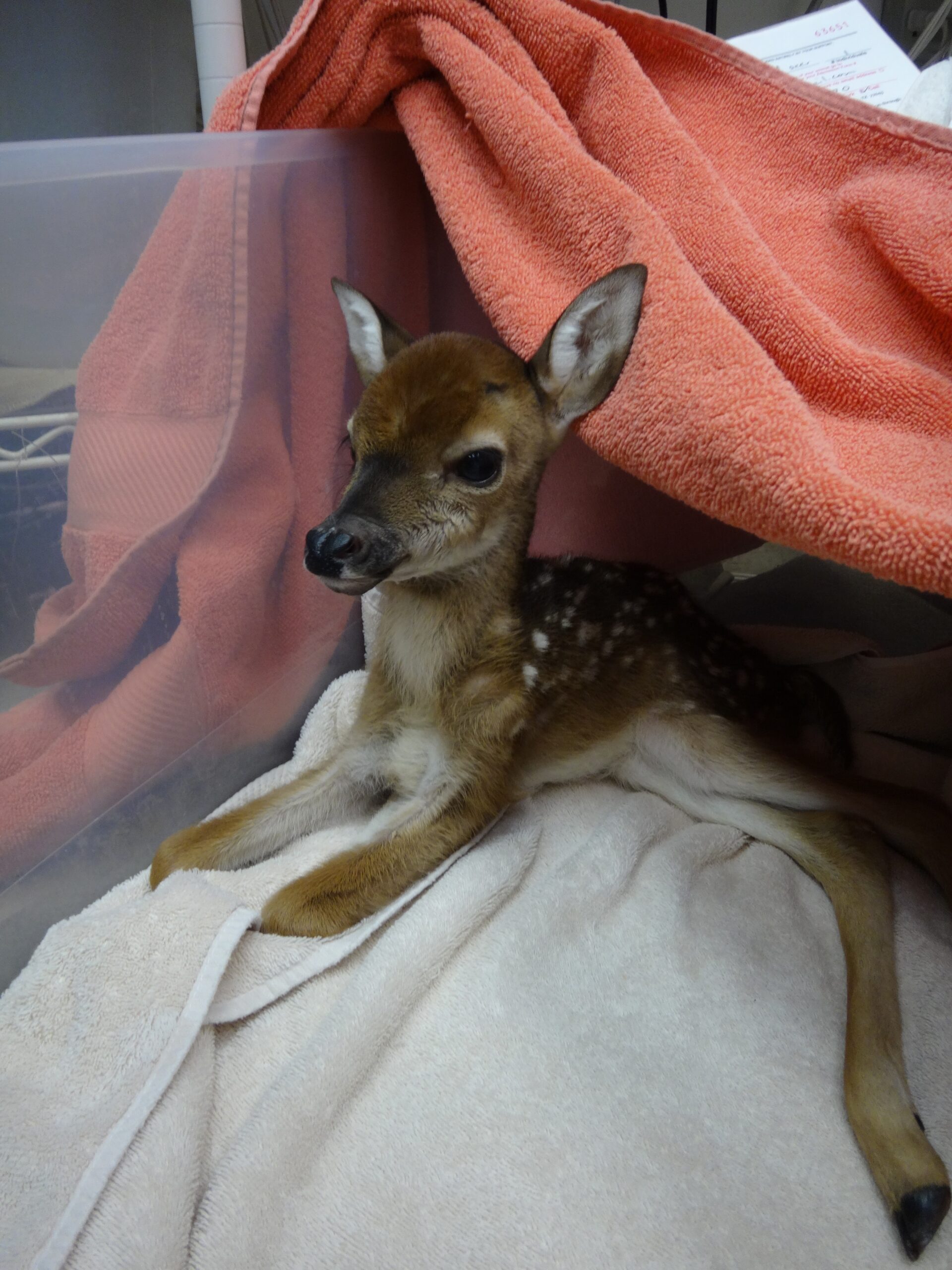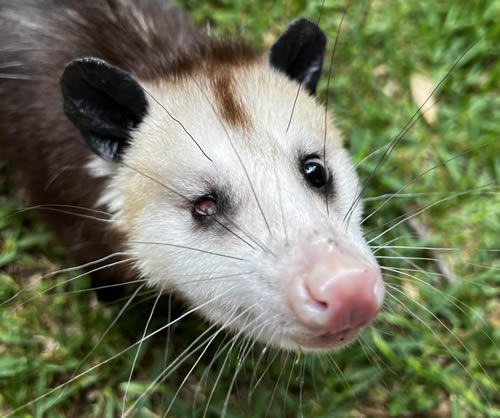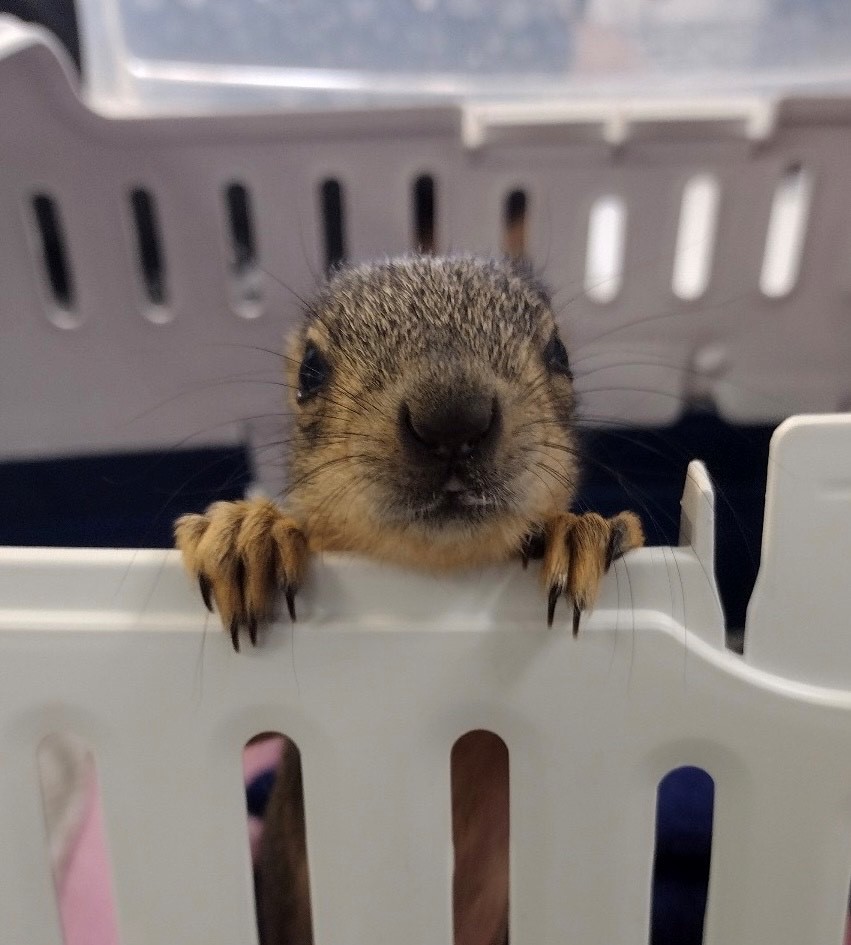WE ARE CURRENTLY NOT ACCEPTING ADMISSIONS FOR THIS SPECIES. PLEASE VISIT ANIMAL HELP NOW TO FIND A WILDLIFE CENTER THAT IS ACCEPTING THEM NEAR YOU.
Have you found a BABY deer?
A baby deer, also known as a fawn, found alone is most likely not abandoned. Young fawns cannot keep up with their mother, so the mom will “bed down” their fawn in what she thinks is a safe place and leave it there alone for long periods of time during the day. If the fawn is wandering around, crying constantly for hours, following people, laying with its limbs stretched out (versus tucked under its body), laying on its side, appears injured or is covered in flies, the fawn may be orphaned. Contact us at 713-468-8972 immediately for further assistance. A fawn that is not exhibiting the above signs should be left alone.

Have you found an INJURED or ILL deer?
If you have found an injured adult deer, please do not attempt to approach or trap the deer. Not only are deer dangerous to capture, but they are an extremely high-stress species. They are so high-stress that they experience a condition called capture myopathy when they are approached and cannot escape. This condition is fatal. If you find an injured adult deer, we recommend calling the Texas Game Warden for the county where the deer was found. You can find this number by using the Search for Game Wardens by County website.
Temporary Care Instructions for ALL Animals:
- Houston Humane Society Wildlife Center (HHS Wildlife Center) recommends that you wear gloves or use a cloth barrier when handling wildlife.
- Prepare an appropriate-sized cardboard box by poking air holes in the top and placing a soft cloth (T-Shirt, towel, paper towels) in the bottom. DO NOT put the animal into a plastic bag.
- Place the animal into the prepared box and tape the box shut. For injured adults, place the box on its side next to the animal and use a stick, broom, or rolled-up newspaper to gently push the animal into the box.
- Do not give the animal any food or liquids. Feeding an animal an incorrect diet can result in injury or death. In addition, rescued animals can get wet from liquids and become hypothermic and/or spill food on their fur/feathers, potentially causing damage.
- Keep the animal in a warm, dark, quiet place. Darkness makes the animal feel more secure. If the animal is a baby, the box can be placed half on and half off a heating pad set on low. If the animal gets too warm it will move to the other end of the box. Do not place adult animals on a heating pad.
- Leave the animal alone. Human noise, touch, and eye contact are very stressful to wild animals and can result in shock or even death. This is especially important in the case of injured or adult animals.
- If an animal has been caught by a cat or dog, please call HHS Wildlife Center immediately at 713-468-8972. Even if wounds are not visible, the animal needs medical intervention as soon as possible.
- Keep children and pets away. BE CAREFUL! An animal that is hurt or frightened may bite.
- Call HHS Wildlife Center at 713-468-8972 as soon as possible!
General Information about Deer in the Houston Area
Did you know that Houston is home to white-tailed deer (Odocoileus virginianus)? Deer are often solitary, but can be found in herds of various size. Female deer (doe), have babies, (fawn) from May to June in the Houston area. Fawns can be identified by their brown coat with spots covering their backs; the speckles create a camouflage for the fawn, thus protecting them from predators.


